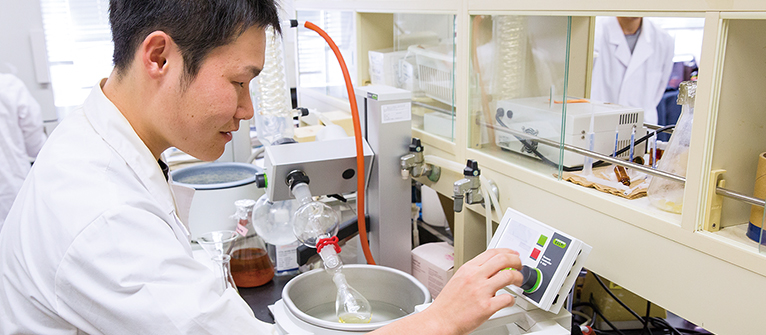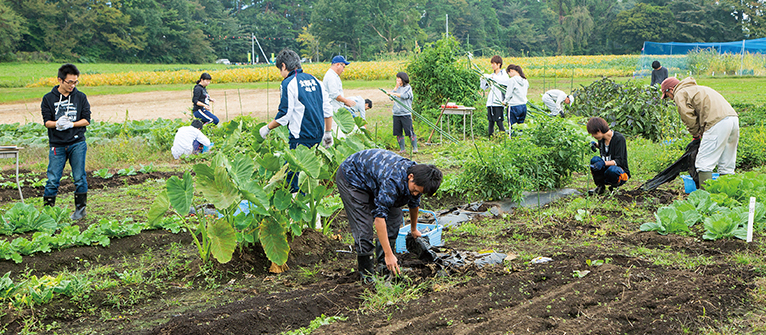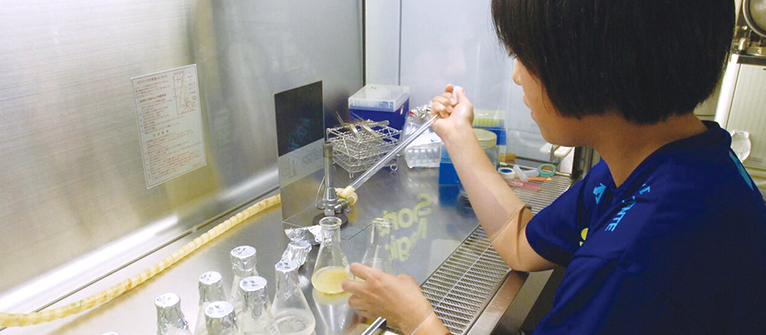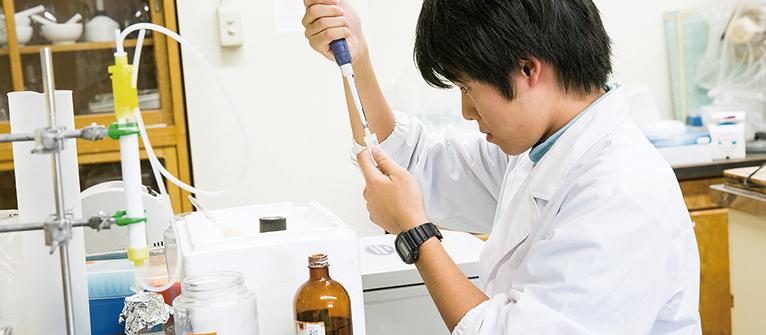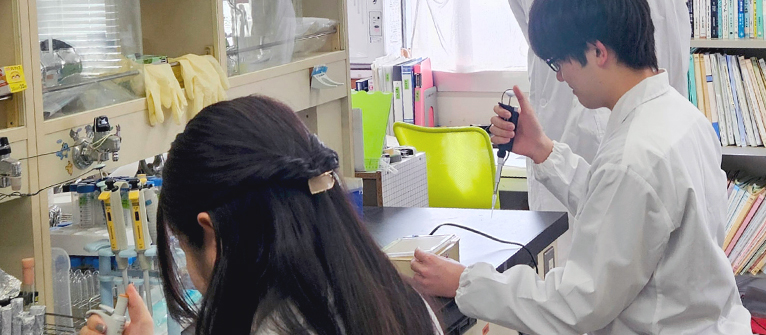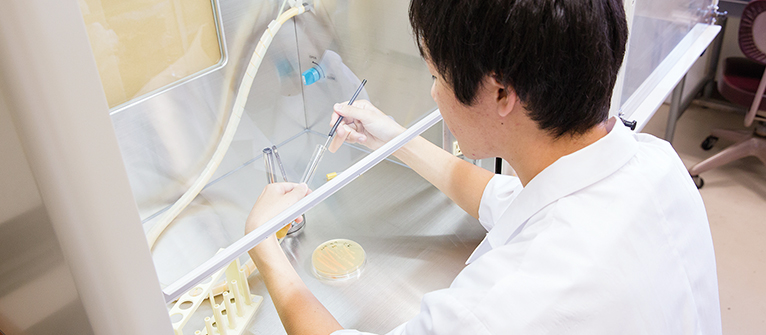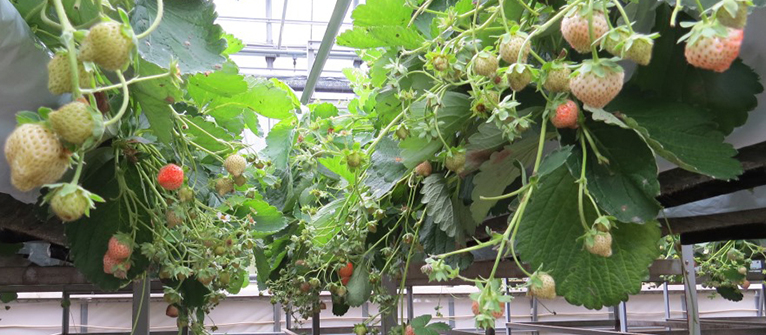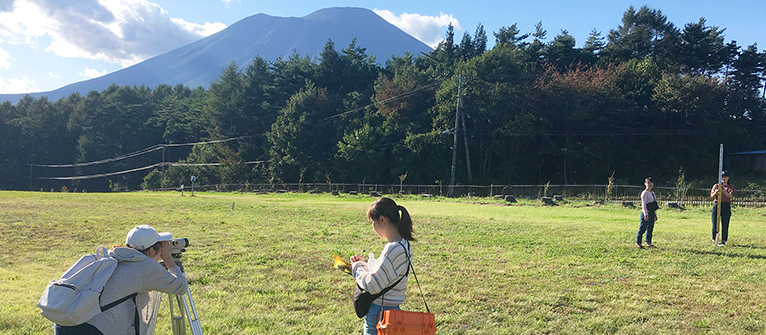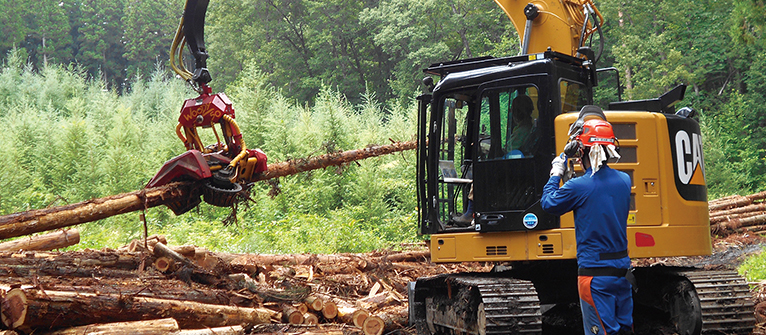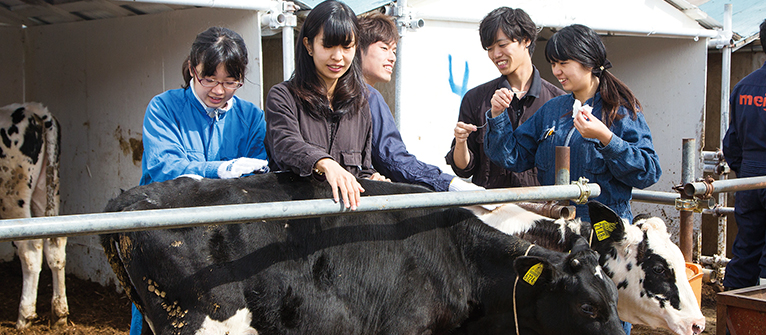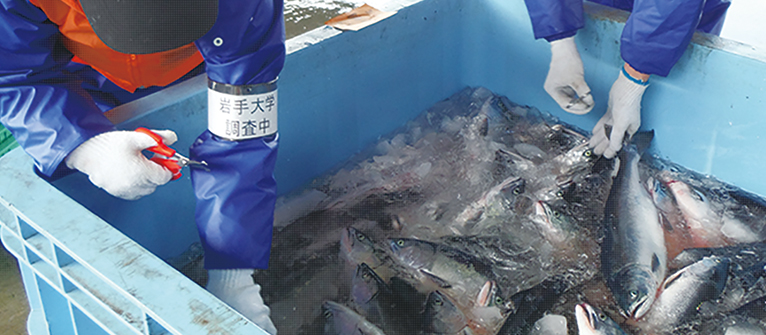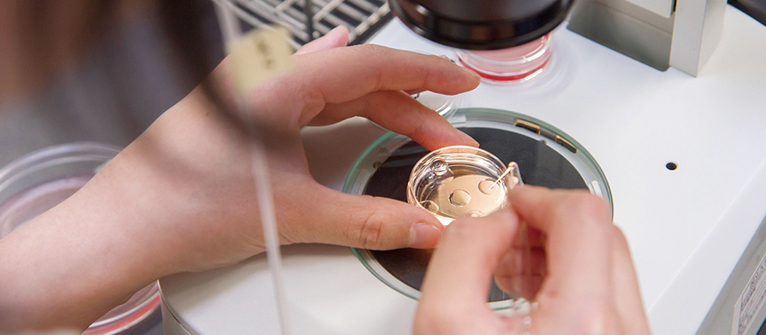Department of
Food and Agricultural Sciences
Course of Agricultural Science
【Capacity of Annual Admission:30】
Course of Food and Health Science
【Capacity of Annual Admission:20】
The Department of Food and Agricultural Sciences offers two courses: Course of Agricultural Science and the Course of Food and Health Science.
This program is aimed at nurturing professionals capable of addressing challenges in agriculture and the food industry to ensure a sustainable food supply. It teaches advanced techniques for growing crops, protecting and maintaining soil health, boosting plant productivity and quality, creating new plant varieties, and using plant viruses for innovative technologies. The course also covers the policies and strategies that underpin food security.
Developed to nurture professionals with a strong scientific background and broad perspective, enabling them to improve public health through food. It supports the growth of both domestic and international food industries and addresses the challenges of an ageing society. The program covers the physical and chemical properties of ingredients and foods, advanced food processing techniques, and the health benefits of foods, nutrition, and natural resources.
Department of
Life Sciences
Course of Molecular Biology and Biochemistry
【Capacity of Annual Admission:25】
Course of Molecular Biomedical Sciences
【Capacity of Annual Admission:26】
The Department of Life Sciences offers two courses: the Course of Molecular Biology and Biochemistry and the Course of Molecular Biomedical Sciences.
This course focuses on uncovering the molecular foundations of diverse biological functions observed at cellular and organism levels in various life forms, including microorganisms, plants, insects, and animals.
This course aims to elucidate life phenomena at the molecular level—from microorganisms to animals and humans—and to apply these insights to advances in public health, disease prevention, and regenerative medicine. It is designed to train professionals who can contribute to enhancing the quality of life.
Department of
Rural Environmental Sciences
Course of Innovative Agriculture
【Capacity of Annual Admission:37】
Course of Forest Science
【Capacity of Annual Admission:33】
The Department of Rural Environmental Sciences offers two courses: the Course of Innovative Agriculture and the Course of Forest Science.
This course is designed to develop professionals with a global perspective and advanced expertise capable of leading regional agriculture. It prepares students to contribute to achieving the SDGs by working toward sustainable food, agriculture, and rural systems. A comprehensive curriculum covers innovative agricultural technologies that are reshaping the agriculture and food sectors.
This course is designed to cultivate professionals who will contribute to developing communities that thrive in harmony with nature. Building on the abundant natural environment of the Tohoku region, the curriculum provides comprehensive education on the various conservation functions of forests, the production and utilisation of timber resources, ecosystem management, and disaster prevention.
Department of
Animal Science and Fisheries Science
Course of Animal Science
【Capacity of Annual Admission:35】
Course of Fishery Systems Science
【Capacity of Annual Admission:20】
The Department of Animal Science and Fisheries Science offers two courses: the Course of Animal Science and the Course of Fishery Systems Science.
This course aims to cultivate professionals who contribute to creating vibrant communities where humans and animals coexist harmoniously. It is based on education and research in both industrial animal production and wildlife conservation and management. The curriculum provides comprehensive training in animal science, covering topics such as the study of physiological functions across various species (with an emphasis on industrial animals), genetic improvement and reproduction, feed production, nutrition and husbandry, and the effective utilisation of animal resources.
This course is designed to develop professionals who can help revitalise the fisheries of the Sanriku coastal region and drive the growth of Japan’s fisheries industry. It provides a systematic education based on essential knowledge and techniques related to the fisheries sector, covering the entire chain—from production (capture and aquaculture) to processing and distribution.




